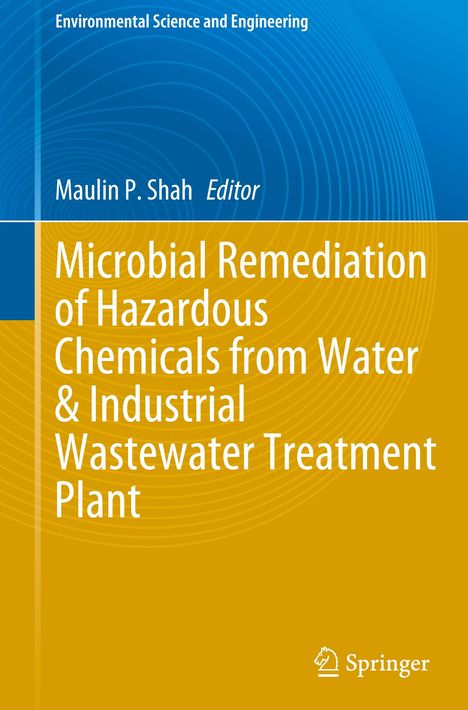Microbial Remediation of Hazardous Chemicals from Water & Industrial Wastewater Treatment Plant, Gebunden
Microbial Remediation of Hazardous Chemicals from Water & Industrial Wastewater Treatment Plant
(soweit verfügbar beim Lieferanten)
- Herausgeber:
- Maulin P. Shah
- Verlag:
- Springer International Publishing, 10/2024
- Einband:
- Gebunden, HC runder Rücken kaschiert
- Sprache:
- Englisch
- ISBN-13:
- 9783031628979
- Artikelnummer:
- 12033597
- Umfang:
- 400 Seiten
- Gewicht:
- 764 g
- Maße:
- 241 x 160 mm
- Stärke:
- 27 mm
- Erscheinungstermin:
- 20.10.2024
- Hinweis
-
Achtung: Artikel ist nicht in deutscher Sprache!
Klappentext
This book discusses the new and emerging innovative trends in the bioremediation of hazardous pollutants found in wastewater. It also includes the fate of pollutants produced after the treatment process both at the laboratory scale and at the industrial scale. The book intrusively explores the unique biological aspects of the wastewater treatment process and highlights the advantages they provide for engineering applications in the industries. Each chapter covers a different biological-based approach and examines the basic principles, practical applications, recent breakthroughs, and associated limitations. It presents an array of cutting-edge wastewater treatment research and thereafter its applications in treatment, remediation, sensing, and pollution prevention processes. The biological process for application in wastewater research has a significant impact on maintaining the long-term quality, availability, and viability of water. This book elucidates the technologies of biological wastewater treatment processes. The biological processes presented in wastewater treatment processes include (1) bioremediation of wastewater that includes aerobic treatment (oxidation ponds, aeration lagoons, aerobic bioreactors, activated sludge, percolating or trickling filters, biological filters, rotating biological contactors, biological removal of nutrients) and anaerobic treatment (anaerobic bioreactors, anaerobic lagoons); (2) phytoremediation of wastewater that includes constructed wetlands, rhizofiltration, rhizodegradation, phytodegradation, phytoaccumulation, phytotransformation, and hyperaccumulators; and (3) mycoremediation of wastewater. The book describes a broad area of biological processes and water research which are considered key components for advanced water purification. It also includes the desalination technologies that remove, reduce, or neutralize water contaminants that threaten human health and / or ecosystem productivity and integrity.


